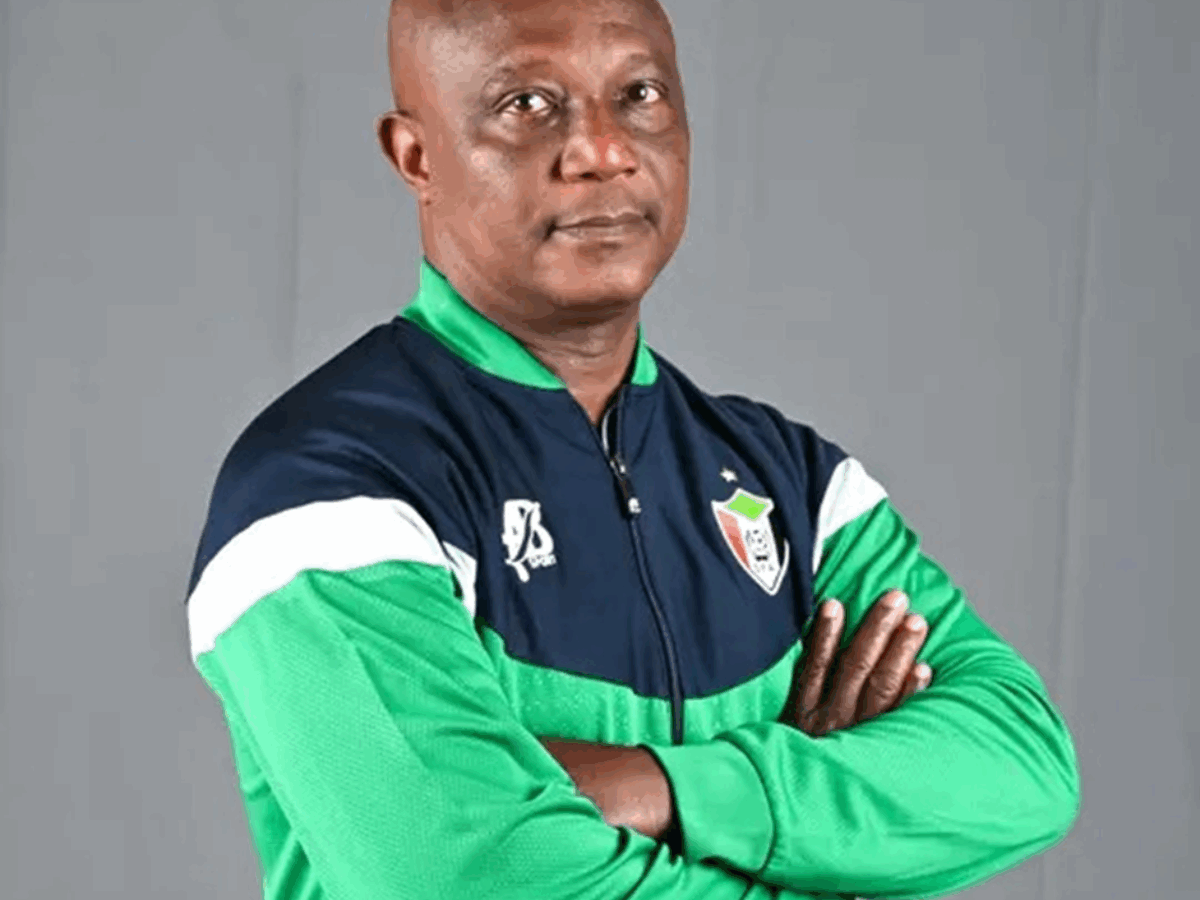Ghanaian coach James Kwesi Appiah has written many chapters in African football, but few are as dramatic as the one unfolding with Sudan as they prepare to play in the semi-finals of the TotalEnergies African Nations Championship (CHAN) PAMOJA 2024 against Madagascar on Tuesday.
Against the backdrop of a brutal civil war that has displaced more than 12 million people and left entire cities in ruins, the 64-year-old has turned Sudan’s CHAN team and the main senior national team, the Falcons of Jediane, into one of the continent’s most compelling stories.
Appiah’s Sudan are not only semi-finalists at the TotalEnergies African Nations Championship (CHAN) PAMOJA 2024, they have also qualified for the 2025 Africa Cup of Nations in Morocco ahead of his own Ghana.
They also sit one point adrift of leaders DR Congo in their 2026 FIFA World Cup qualifying group that includes continental giants Senegal.
For a nation whose domestic league is suspended, whose players live as nomads, and whose home fixtures are staged in Libya or South Sudan, it borders on the miraculous.

A Career of Firsts
For Appiah, this is not the first time he has turned adversity into triumph. As a player, he was part of Ghana’s 1982 Africa Cup of Nations winning squad in Libya, claiming the Black Stars’ fourth continental title.
As a coach, he became the first black African to lead Ghana to a FIFA World Cup in 2014, steering them to Brazil. He was also assistant coach in 2010 when Ghana reached the World Cup quarter-finals — still Africa’s best showing alongside Cameroon (1990), Senegal (2002) and Morocco (2022) even though Morocco surpassed this achievement by playing in the semi-final of the 2022 World Cup in Qatar.

Despite these achievements, Appiah is looking forward to achieving more when they take on Madagascar in the last four of the tournament meant only for home-based players even though his players are not actively playing in their domestic league because of the war.
“Once you are in a tournament, you must aim for the trophy,” Appiah told CAFOnline.com
“I don’t believe in participating just to add numbers. If you enter, you must go all out to win.”
That belief has travelled with him from Accra to Khartoum — and now to Sudan’s temporary bases in Saudi Arabia, Mauritania and Libya.
Sudan’s Journey in the Darkest Times
The war that broke out in April 2023 forced Sudan’s league to be suspended. Its top clubs, Al Hilal and Al Merrikh, were temporarily absorbed into the Mauritanian league just to keep players active.
Many squad members have lost family members to the conflict; others are separated from loved ones scattered across refugee camps in Chad and South Sudan.
“Most of the time, we receive messages that one of the boys has lost a relative,” Appiah said.
“But I always remind them: you are the ones who can bring smiles to your people. Even when the fighting continues, when we play, sometimes the guns go silent for a week or two.”
The symbolism is powerful: football as a fragile sanctuary in the midst of war. And for Sudanese everywhere — from Omdurman to Cairo, from diaspora communities in Europe and Australia — this team has become a source of unity.

Eliminating Ghana and Defying Giants
Perhaps the most poignant twist of this journey is that Appiah’s Sudan eliminated his own country, Ghana, in Afcon 2025 qualifying. A goalless draw in Accra was followed by a stunning 2-0 victory in Benghazi that sealed Ghana’s first failure to reach the Nations Cup in 20 years.
“As a Ghanaian, of course I was sad,” Appiah admitted.
“But once you are a professional, you look at where you are working. My responsibility is Sudan.”
Sudan’s Afcon qualification came after a nerve-shredding campaign. Despite a 4-0 collapse to Niger, they recovered to hold Angola 0-0 and secure second place in their group. The joy was palpable: “Everybody put their guns down and danced in the streets,” Appiah recalled of the celebrations.
The CHAN semi-final run only underlines their resilience.
Against Algeria, last edition’s runners-up, Sudan fought to a 1-1 draw before winning Saturday’s match 4-2 on penalties, with goalkeeper Mohamed Abooja the hero. Now they stand one game away from a first-ever CHAN final.

Coaching Philosophy: Belief Above All
Appiah’s methods go beyond tactics. “I tell the players to feel like they are Messi or Ronaldo,” he explained.
“They should never belittle themselves. Wherever we play, whether we have supporters or not, we must see it as home.”
His emphasis on psychology has lifted players such as Abdelrazig Taha Yagoub Omer, Mohamed Alnour ‘Abooja’ Adam Saeed, Mohamed Abdulrahman, Abuaagla Abdallah and Ramadan Agab into leaders, while diaspora talents like Abdelrahman Kuku — raised in Australia, now playing in Libya — have added depth to the squad.
With training camps in Saudi Arabia offering modern facilities and exposure, the Falcons are fitter, more tactically astute and mentally tougher than at any point in their modern history.

A Mission Bigger Than Football
For Appiah, football is about more than results. “Maybe through football, the war might even come to an end,” he told BBC Sport Africa.
That may sound idealistic, but the evidence is visible: Sudanese fans from rival clubs Al Hilal and Al Merrikh have set aside decades of hostility to unite behind the national team.
Refugees in camps beam matches on small televisions, briefly escaping the horrors of displacement.
“Football is one of the keys that can unlock such wars,” Appiah insists.
His success has already inspired debate across Africa about trusting local coaches, with many pointing to him as proof that African managers can deliver even in the harshest conditions.
The Road Ahead
Sudan now prepare to face Madagascar in the CHAN semi-finals, the only East African side left standing after co-hosts Kenya, Tanzania and Uganda all exited in the quarter-finals.
Later this year, they will line up at Afcon 2025 in Morocco, with Algeria, Burkina Faso and Equatorial Guinea in their path. And in 2026, they could yet be at the World Cup in North America — a stage Sudan have never reached before.
Whatever happens next, Kwesi Appiah has already etched his name into the continent’s football folklore. From Afcon champion in 1982, to World Cup coach in 2014, to miracle worker in 2024–25, his legacy is secure.
As he put it himself: “By God’s grace, we have qualified. We will prepare very well and ensure we have a strong team. Any competition we enter, we aim for the cup.”

Source: CAFOnline


